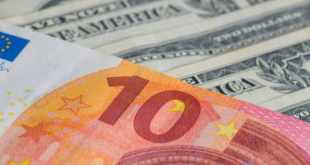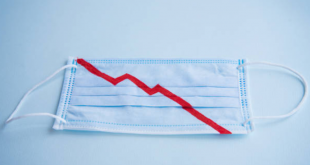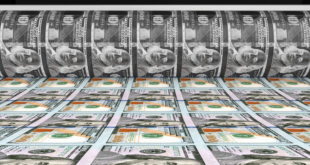In the early days of the coronavirus crisis, the rationale given for lockdowns was that it was necessary to stay at home for “fifteen days to slow the spread.” The idea was that social distancing was necessary so that hospitals and other healthcare resources would not be overwhelmed. However, by the summer of 2020, whether by design or not, it became common to hear media pundits, politicians, and even some scientists either imply or outright claim that social...
Read More »The US Dollar Collapse Is Greatly Exaggerated
The US Dollar Index has lost 10 percent from its March highs and many press comments have started to speculate about the likely collapse of the US dollar as world reserve currency due to this weakness. These wild speculations need to be debunked. The US dollar year-to-date (August 2020) has strengthened relative to 96 out of 146 currencies in the Bloomberg universe. In fact, the US Fed Trade-Weighted Broad Dollar Index has strengthened by 2.3 percent in the same...
Read More »Hayek’s Plan for Private Money
The most famous Austrian economist is 1974 Nobel laureate Friedrich Hayek. Because of his moderate views excusing state interventions in various circumstances, hardcore Rothbardians tend to regard Hayek as less than pure in many areas. However, one area where Hayek is certainly more radical (though perhaps not correct!) than even Murray Rothbard is monetary institutions, as detailed in his fascinating (1978) pamphlet The Denationalisation of Money. When it comes to...
Read More »Howard Buffett: Against Legal Plunder
In August of 1963, Human Events published an article written by Howard Buffett entitled “’Thou Shalt Not Steal!’ But Government Confiscation Has Been Legalized.”1 Buffett began it with satire, suggesting that the Seventh Commandment (eighth in some religions) had become obsolete. Indeed, throughout history, he said, the commandment had “always been a thorn in the side of many people, both great and small.” The strong and the powerful saw it as an “unwarranted...
Read More »Where Did the US Government Get the Power to Assassinate People?
In an August editorial, the New York Times called for an investigation into the attack on Russian dissident Aleksei Navalny, who was recently transported to Germany in a coma after apparently being poisoned. No one knows who did the poisoning, but the Times has strong suspicions: A hit on so prominent a figure, with the inevitable eruption of global and domestic fury, would presumably require sanction from the highest echelons of power….Mr. Putin has certainly shown...
Read More »The EU’s Drive toward Political Centralization Will Doom Its Economy
In the wake of the economically disastrous covid-19 shutdowns, the political class has desperately tried to save the failing euro system. On July 21 European leaders agreed on what they called a “historic” deal. It was nothing more than a multitrillion euro stimulus package. However, it is more probable that the “recovery fund” will delay any chance of a much-needed economic restructuring taking place. What it will do is waste scarce resources and capital while...
Read More »Bankruptcies Rise Despite Trillions in New Liquidity
Misguided lockdowns have destroyed the global economy and the impact is likely to last for years. The fallacy of the “lives or the economy” argument is evident now that we see that countries like Taiwan, South Korea, Austria, Sweden, and Holland have been able to preserve the business fabric and the economy while doing a much better job managing the pandemic than countries with severe lockdowns. One of the most alarming facts about this crisis is the pace at which...
Read More »We’re Headed toward Stagnation—Unless the Fed Reins In Its Money Printing
The US Fed is considering lifting its inflation target above 2 percent in order to revive the economy. Contrary to the accepted practice, the Fed is not expected to raise an alarm if the measured price inflation begins to rise. The US central bank is not expected to counter this increase with a tighter monetary stance as in the past. In fact, the idea is to continue robust monetary pumping until the economic data points toward a strong economy. According to most...
Read More »How Capitalists Improve Human Productivity
To quote the last paragraph of this 2008 article by Robert Murphy, when asked why Austrian school economics should be studied, the best answer is: “the Austrian theory of capital is the best one you can find if you really want to grasp how the economy actually works—beyond sterile mathematics and static timeless analysis.” The Austrian school’s understanding of capital and production relies upon three main pillars. First: the factors of production comprise both...
Read More »The Failures of Federal Race-Based Paternalism
In an address to the Massachusetts Anti-Slavery Society in 1865, Frederick Douglass noted that he had often been asked “What should we do with the Negro?” Douglass remarked: I have had but one answer from the beginning. Do nothing with us! If the apples will not remain on the tree of their own strength, if they are worm eaten at the core, if they are early ripe and disposed to fall, let them fall….And if the Negro cannot stand on his own legs, let him fall also. All...
Read More » Swiss Economicblogs.org
Swiss Economicblogs.org










